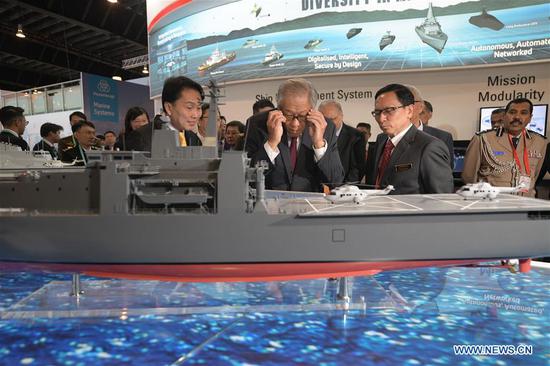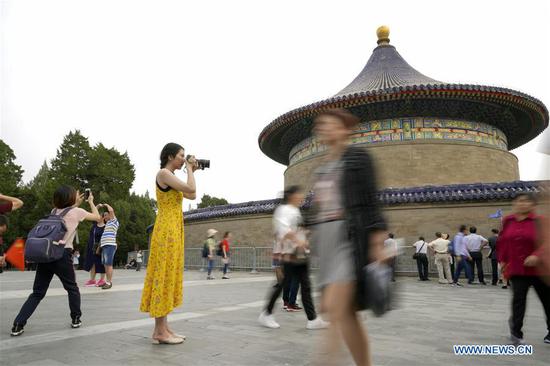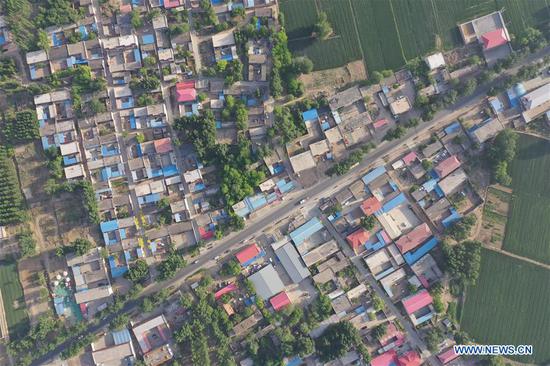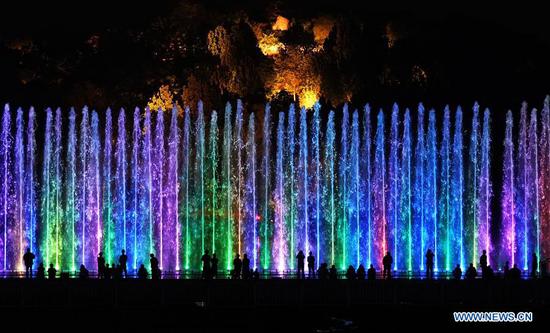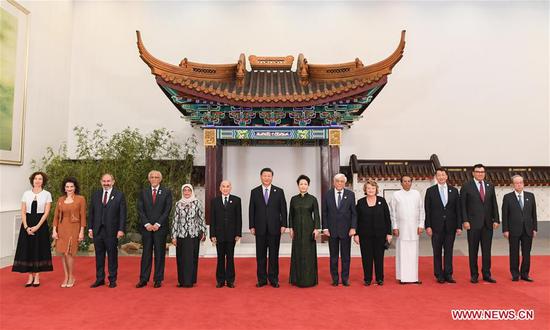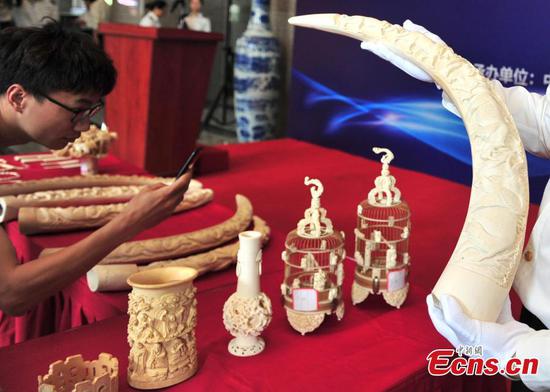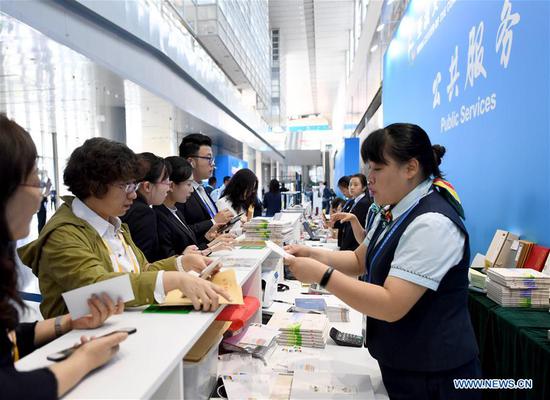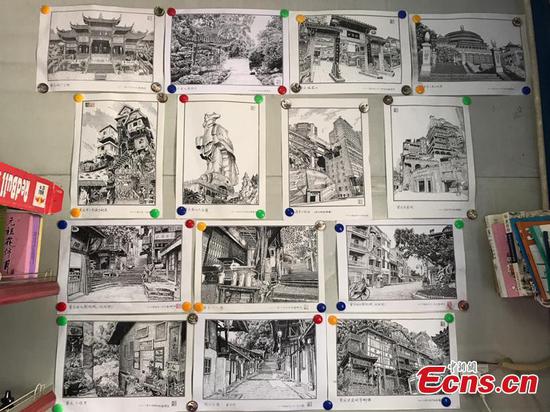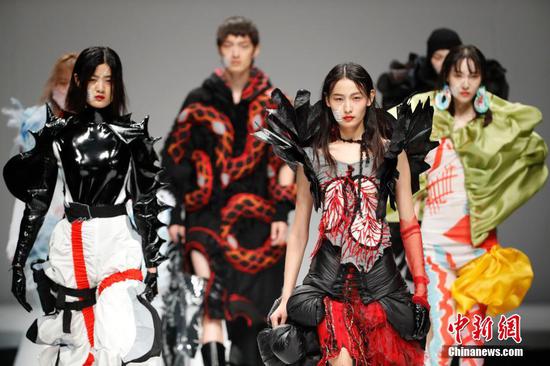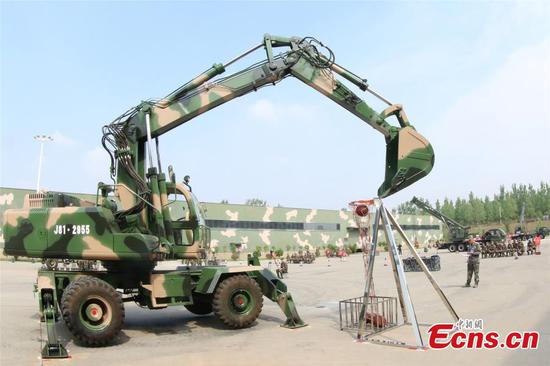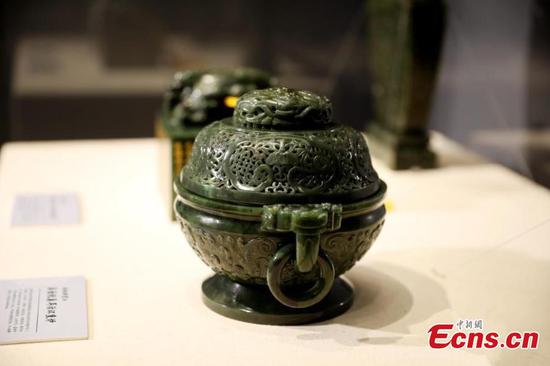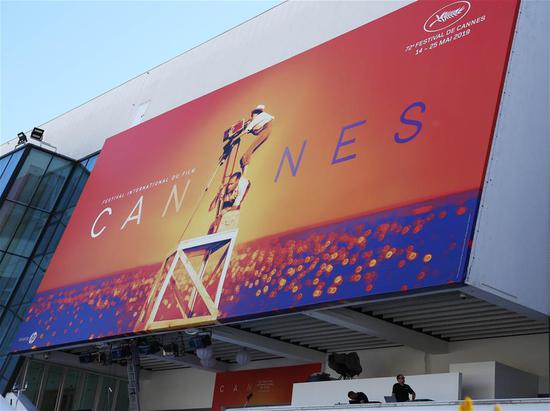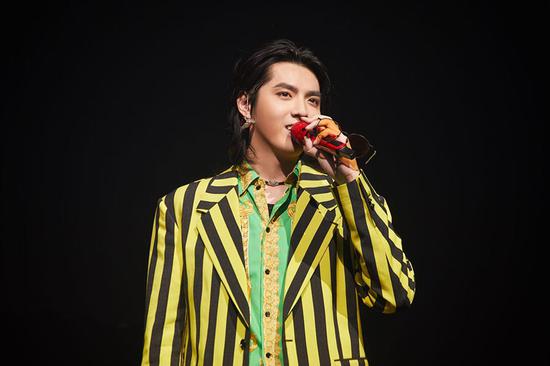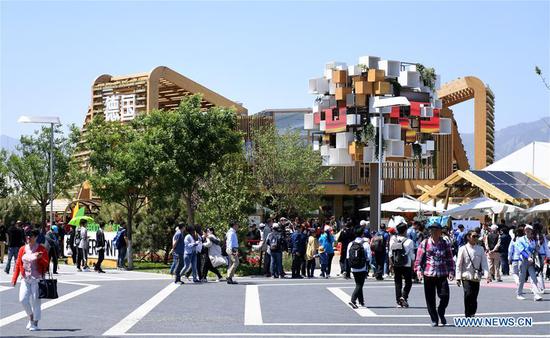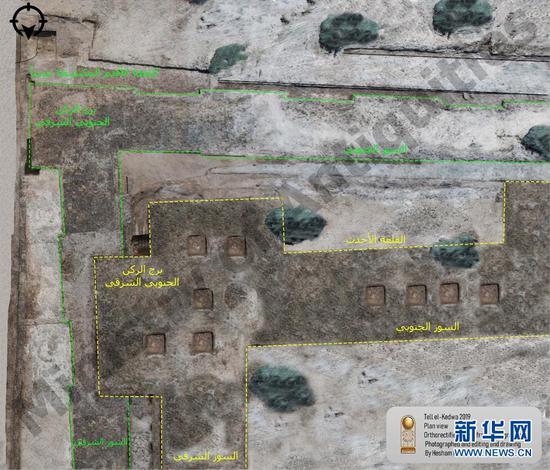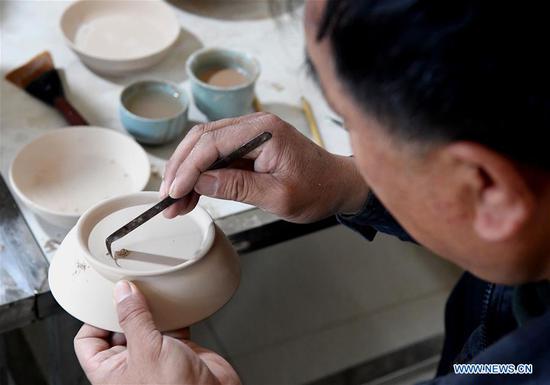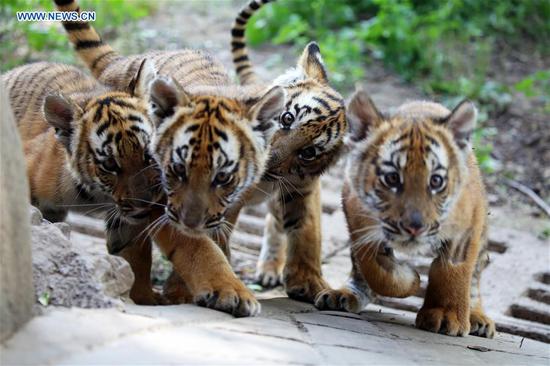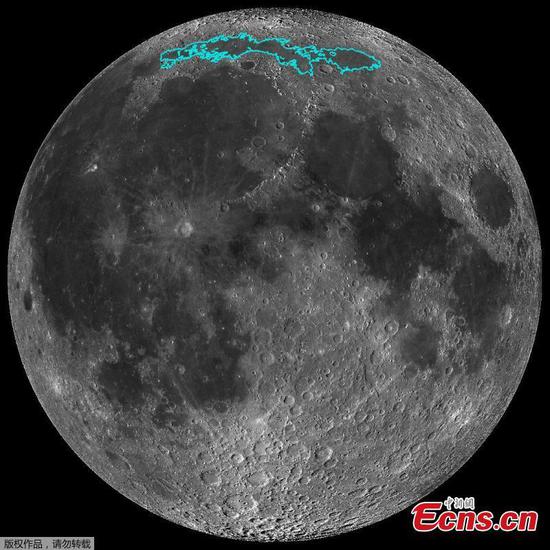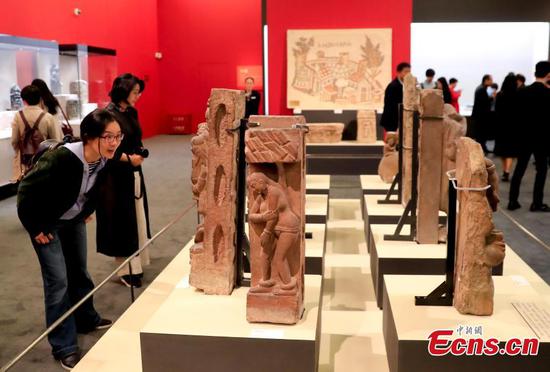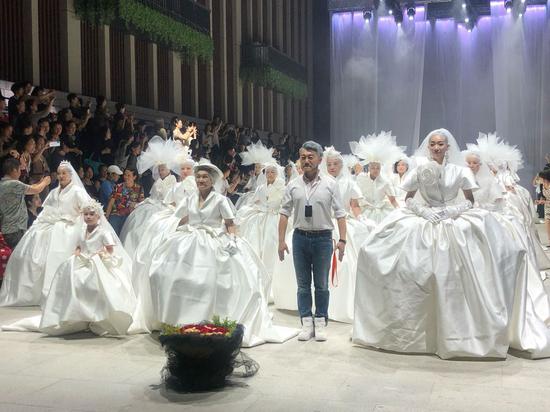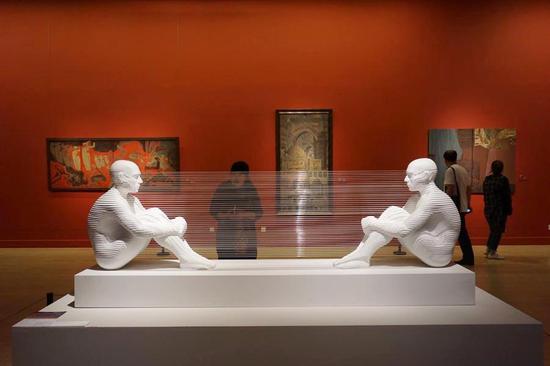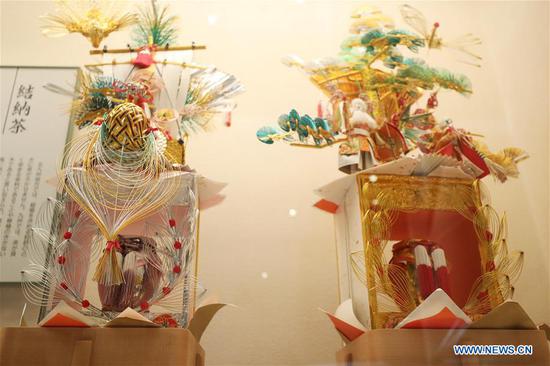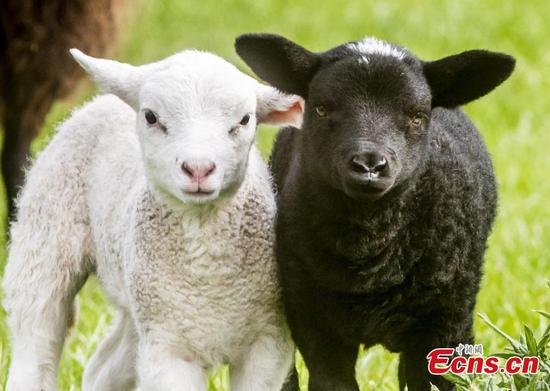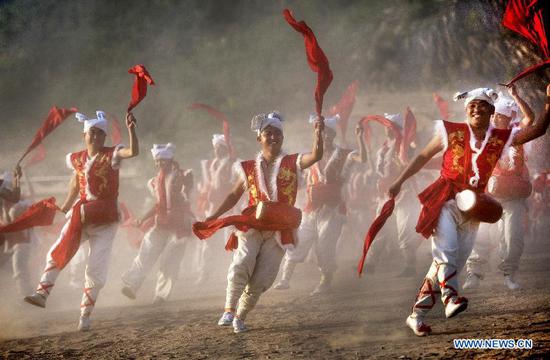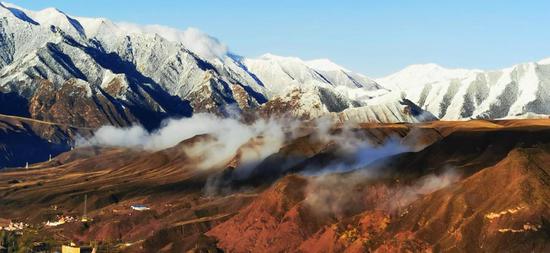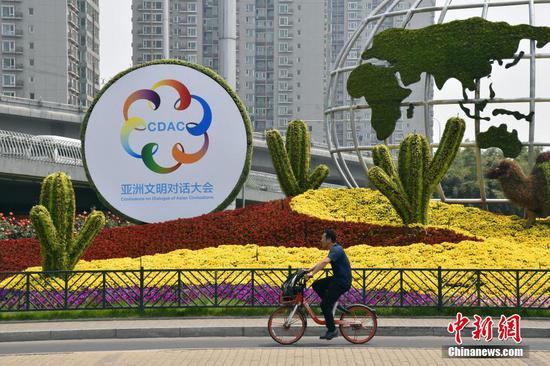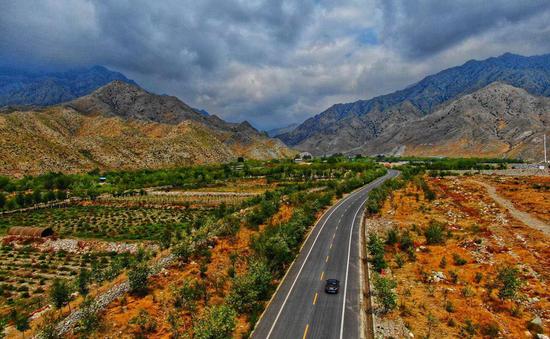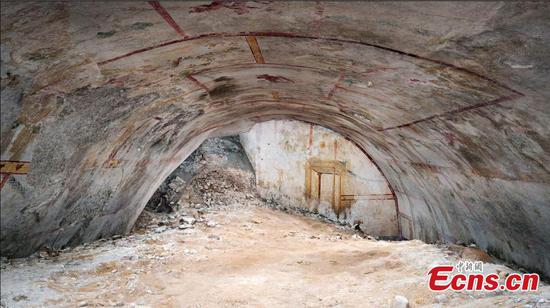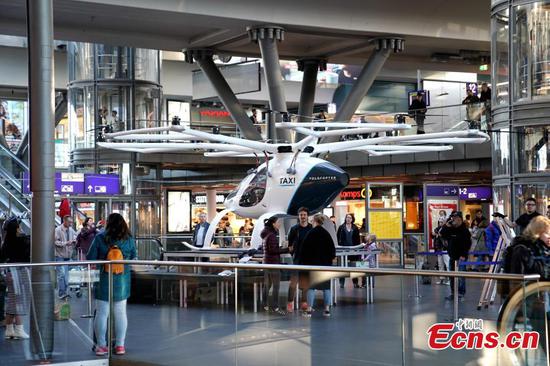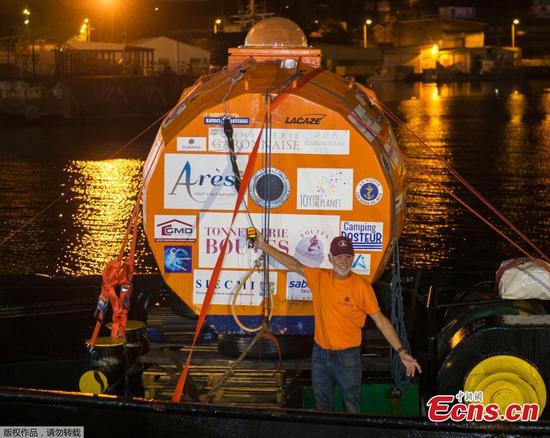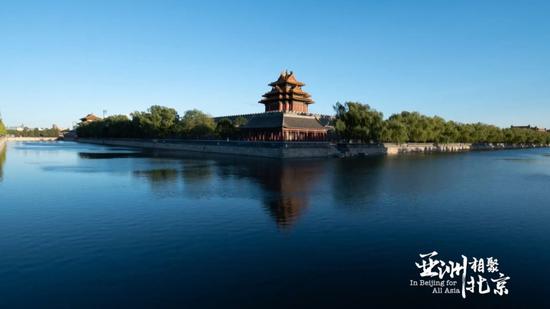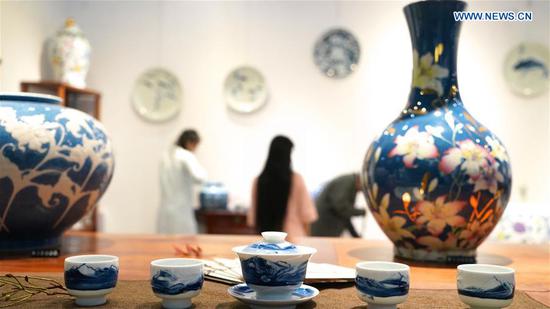
Visitors look at porcelains during the 2018 China Jingdezhen International Ceramics Exposition in Jingdezhen, east China's Jiangxi Province, Oct. 18, 2018. The 2018 China Jingdezhen International Ceramics Exposition attracted over 3,000 exhibitors from nearly 500 global ceramics enterprises. (Xinhua/Hu Chenhuan)
With China maintaining sound economic momentum for decades, observers have long tried to fathom to what extent Chinese culture is behind development of the world's second-largest economy.
Many believe Chinese culture shapes the characteristics of the Chinese people and helps drive the country's economic growth.
OPEN, INCLUSIVE
Ryan Labar, a 43-year-old American ceramic artist who runs a workshop in Jingdezhen, an eastern Chinese city known as the "porcelain capital", said coming to Jingdezhen is like "a son returning home."
"Despite its language which I didn't know and still don't know, I feel comfortable. I speak the language of porcelain and everyone else around me understands that language," he said.
Dramatic changes are undergoing in Jingdezhen. The city is embracing its old historical identity but shining it up, Labar said.
Jingdezhen has a long history of porcelain production. The city lost some of its past glory in modern times due to various reasons. Yet thanks to its transition plan and increasing number of artists dedicated to the crafts of porcelain making, new vitality is being injected into Jingdezhen, where previously abandoned factories have been turned into art communities and incubators that attract capital, technology and people from different cultures and with various backgrounds.
China respects cultural diversity and is keen to learn, import and absorb whatever cultural fruits it can, and Jingdezhen offers a platform for cross-culture exchange, said Huang Wei, founder of the Dongjiao Center, a porcelain gallery in Jingdezhen.
China is open to change and open to pushing new ideas into reality. "There is a can-do attitude and an ability to manifest a creation or idea," Labar said.
Back in the United States after a one-year stay in China, Labar was bothered by an inconvenience -- he kept forgetting his wallet. "I never carry a wallet in China, because everything is paid with by WeChat or Alipay on my cellphone."
Falling in love with the country and the culture, Labar kept inviting his friends to visit China again and again.
Chinese culture is amazing, but it's even more amazing to see "how China is evolving, adapting, changing and creating a new world identity," he said.
CULTURAL NUTRIENTS
After experiencing 34 years of China's development during the past four decades, Bridgewater Associates founder and co-chairman Ray Dalio attributed China's rapid development to a combination of its culture and the reform and opening up.
"There is a lot to respect about the Chinese culture and approach that led to its remarkable accomplishments," Dalio said.
Describing Chinese political culture, Dalio noted there is a top-down way of setting up a mission, putting the collective interest ahead of individual interest with each member knowing their place in the hierarchy.
Zhu Tian, a professor at the China Europe International Business School, believes Chinese culture, predominately Confucian values, is the key to China's rapid economic development.
Zhu said that compared with other developing countries, China's outperformance stems from two fundamental features of its culture -- thrift and an emphasis on education, which fit the three engines powering economic growth -- investment, education and technological progress.
Thrift leads to high saving rates, which helps boost investment, while an emphasis on education provides an educated labor force, which ensures progress of technology and productivity, he said.
Chinese culture emphasizes harmony but not uniformity, as well as the ideas of harmonized development and inclusive growth, which are quite helpful for generating solutions, said Zhuang Jian, senior economist with Asian Development Bank.
According to Zhuang, Chinese culture lays less stress on divergence and competition, thus offering wisdom for exploring opportunities for win-win cooperation.









